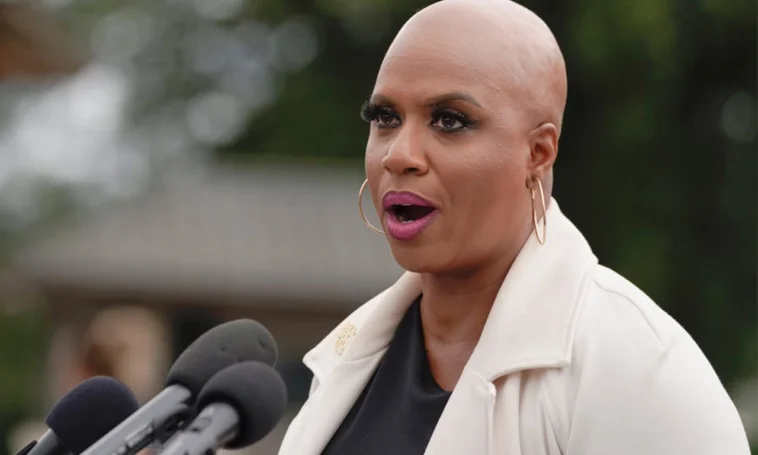‘Squad’ Member Draws Parallel Between Anti-Israel Campus Protests and Civil Rights Movement. Rep. Ayanna Pressley, a member of the progressive “Squad,” has sparked controversy by comparing pro-Palestine college protests to the civil rights movement. In a social media post, Pressley suggested that university encampment demonstrators are on par with protests for civil rights 60 years ago, earning praise from some and criticism from others.
Pressley’s comparison has raised questions about the limits of free speech and the role of universities in addressing social justice issues. While some see the protests as a necessary response to injustice, others view them as disruptive and harmful. The situation highlights the complex and multifaceted challenges of balancing free speech with the need to protect students from harmful speech and actions.
“From the 1960s civil rights movement, the Vietnam War protests, the struggle for gender equality, and the movement for Black lives, to the global movement for peace in Israel and Palestine, many of the rights we tout today were earned thanks to the sweat equity of students demonstrating on college campuses across the nation,” Rep. Pressley said.
The protests in question have been ongoing at several universities, including Columbia, Yale, and New York University, with students demanding that their administrations divest from companies perceived as profiting from Israel’s war against Hamas terrorists. The protests have been largely peaceful, but there have been reports of disruptions and confrontations with counter-protesters.
Pressley’s comments have been met with both support and criticism. Some have praised her for standing in solidarity with the students and acknowledging the importance of their cause. Others have criticized her for downplaying the disruptions and intimidation tactics used by some protesters, and for drawing an equivalency between the civil rights movement and the pro-Palestine protests.
Fellow “Squad” member Rep. Ilhan Omar has also weighed in on the issue, visiting the Columbia encampment and praising the protesters for their “bravery and courage.” Omar’s daughter, Isra Hirsi, was arrested at the protest last week, and Omar has been vocal in her support for the students and their cause.
The situation has sparked a wider conversation about free speech, protest, and the role of universities in promoting inclusivity and safety. While some argue that the protests are a necessary response to injustice, others see them as a threat to free speech and academic freedom. The situation highlights the challenges of balancing competing values and interests, and the need for universities to navigate these complex issues in a fair and inclusive manner.
In addition to the free speech implications, the situation has also raised questions about the role of outside agitators and the response of law enforcement to the protests. There have been reports of outside groups attempting to disrupt the protests, and of police using aggressive tactics to disperse the crowds. Pressley and other lawmakers have called for restraint and for universities to refrain from punishing peaceful protesters.
Overall, the situation highlights the complex and multifaceted challenges of balancing free speech with the need to protect students from harmful speech and actions. While some see the protests as a necessary response to injustice, others view them as disruptive and harmful.



